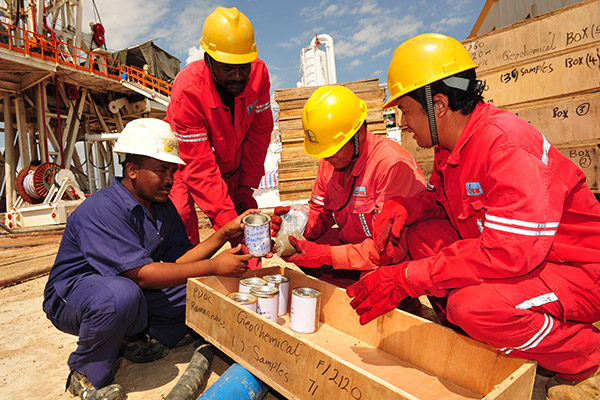
Former employees of Powerlift Branch Chad, a subcontractor of the Chinese oil giant CNPCIC, have accused the company of widespread abuse, discrimination, and illegal dismissals.
Speaking at a press conference held at the Bourse du Travail in N’Djamena on Saturday, June 21, the workers denounced what they described as exploitative labor practices orchestrated by both foreign executives and their local partners.
The group of former employees worked at the Koulamallah site, where they claim mistreatment and targeted reprisals were commonplace. Their grievances stem from a prolonged labor dispute that escalated into a strike from September 23 to October 7, 2024.
During the strike, a delegation representing the workers attempted to negotiate with company officials in N’Djamena. The labor inspector for the municipality intervened and requested the suspension of the strike to allow room for talks with SOLSUN SERVICES, the employment firm managing the workers.
However, according to the workers, the negotiations failed to address even a single item from their list of demands.
The situation further deteriorated when SONO-SERVICE, another local contractor tied to Powerlift, had its contract terminated. The fallout led to the abrupt and forced unemployment of many national workers, prompting allegations of deliberate targeting.
In a startling development, the workers reported that Powerlift, via SOLSUN SERVICES, hired 23 new employees while simultaneously barring 24 former workers—14 from SONO-SERVICE and 10 from SOLSUN SERVICES—from returning to their roles.
One of those excluded is currently a sitting member of Chad’s National Assembly.
The decision was allegedly carried out in the presence of labor inspectors, raising further concerns about legal violations and complicity.
The former employees claim that those who remained in their positions after the strike were threatened with dismissal and labelled “obstacles.”
The company, they assert, is systematically purging dissenting voices in a bid to silence resistance to its practices.
Calling the situation alarming, the group issued an urgent appeal to Chadian authorities.
They urged the government to intervene swiftly to prevent what they describe as “authoritarian excesses” and to enforce labor laws that protect workers from abuse, discrimination, and unlawful termination.
The press conference marks the latest chapter in a growing outcry over labor conditions in Chad’s oil sector, where foreign multinationals wield significant influence and local workers often find themselves with little recourse.



